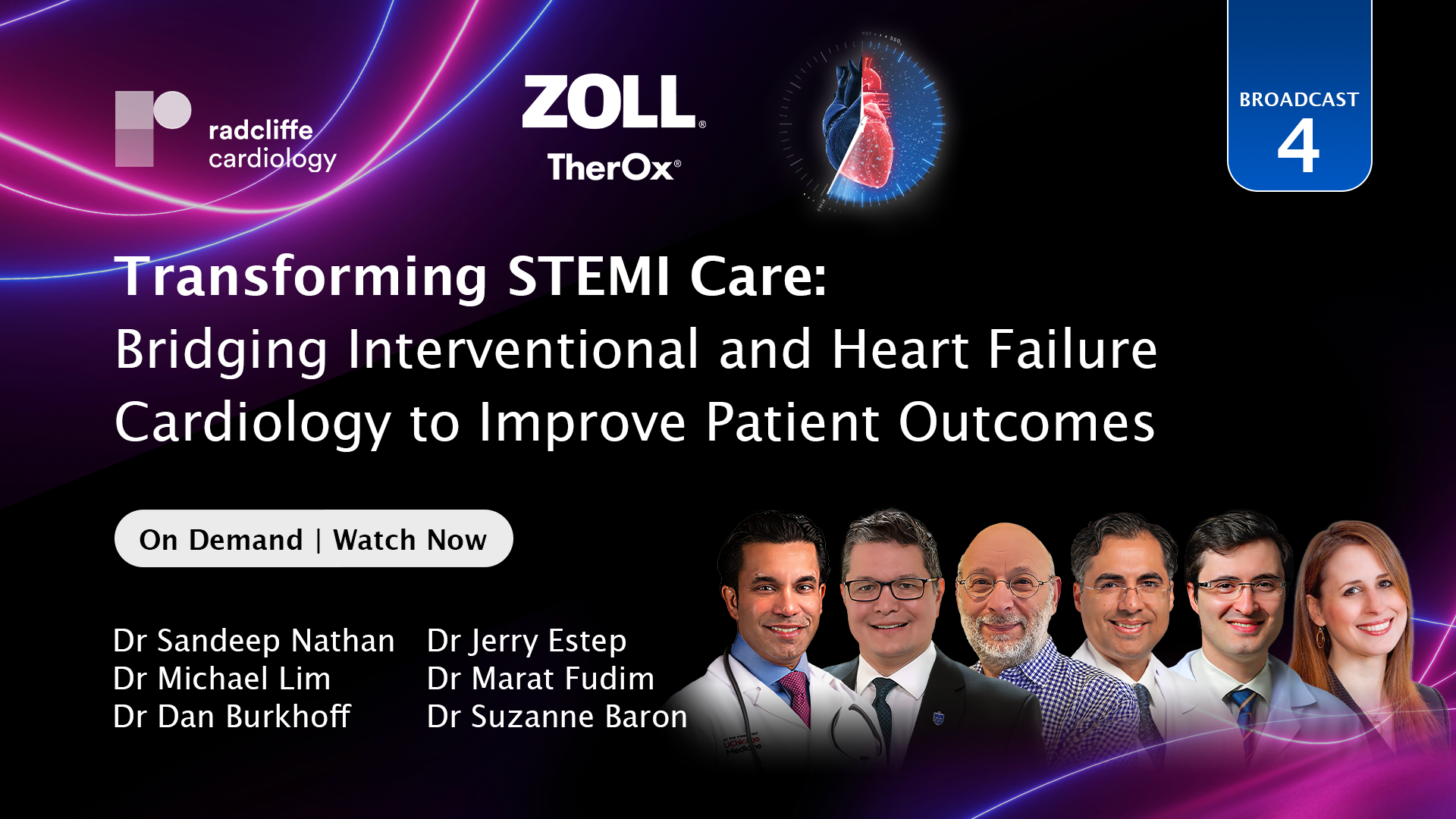Supersaturated Oxygen (SSO2) Therapy in STEMI Treatments
Published: 06 December 2021
-
Views:
 9260
9260
-
Likes:
 7
7
-
Views:
 9260
9260
-
Likes:
 7
7
-
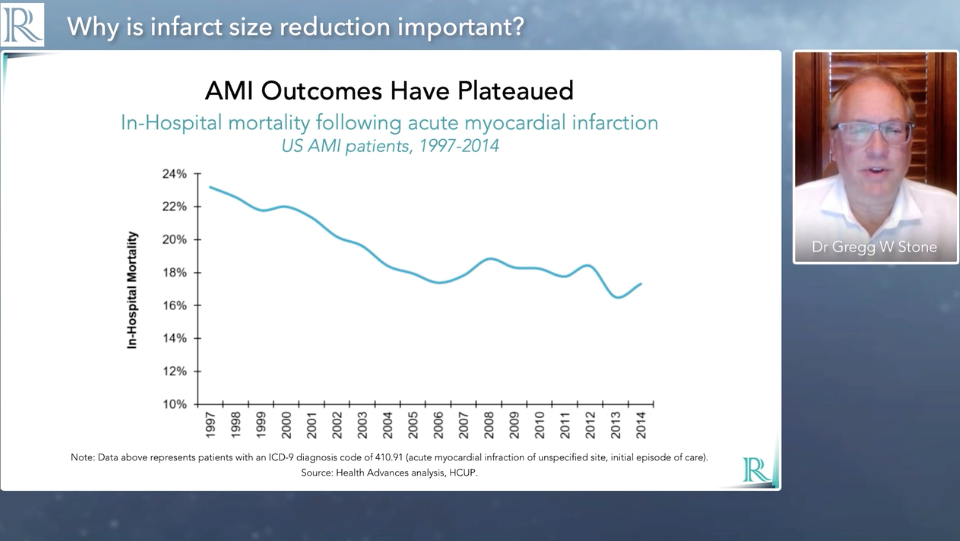 4m 32sPart 1 | Session 1 Why is Infarct Size Reduction Important Gregg Stone, Robert Kloner
4m 32sPart 1 | Session 1 Why is Infarct Size Reduction Important Gregg Stone, Robert Kloner
-
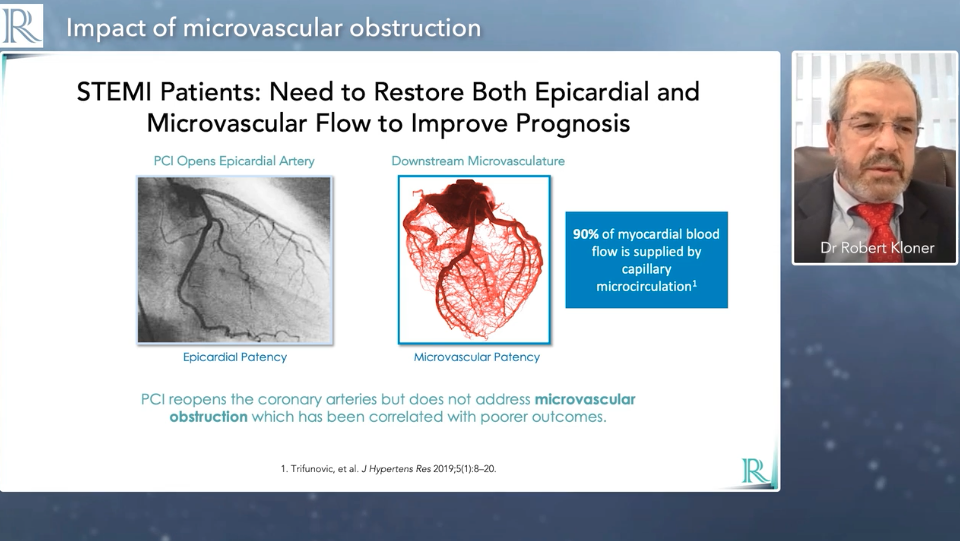 7m 22sPart 1 | Session 2 Impact of Microvascular Obstruction Robert Kloner, Gregg Stone
7m 22sPart 1 | Session 2 Impact of Microvascular Obstruction Robert Kloner, Gregg Stone
-
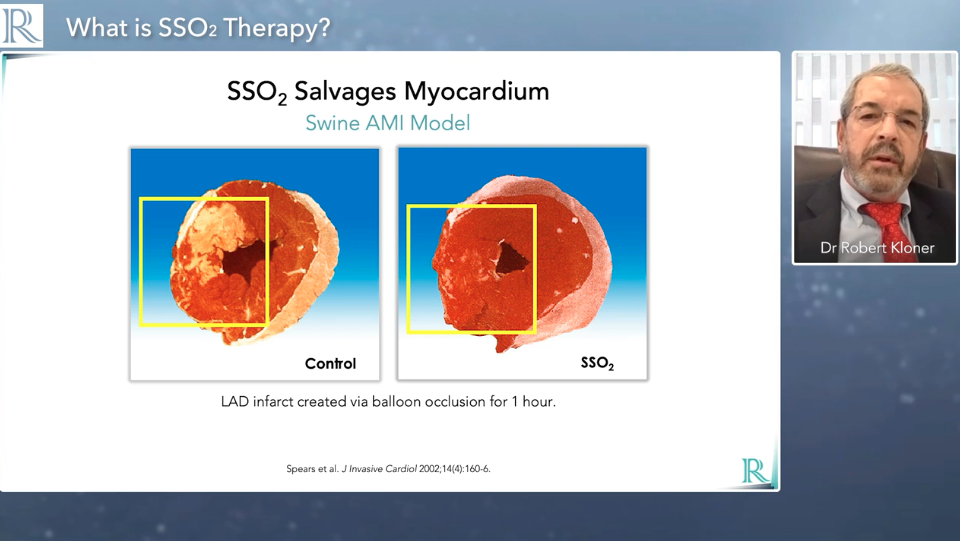 5m 51sPart 1 | Session 3 What is SSO2 Therapy Gregg Stone, Robert Kloner
5m 51sPart 1 | Session 3 What is SSO2 Therapy Gregg Stone, Robert Kloner
-
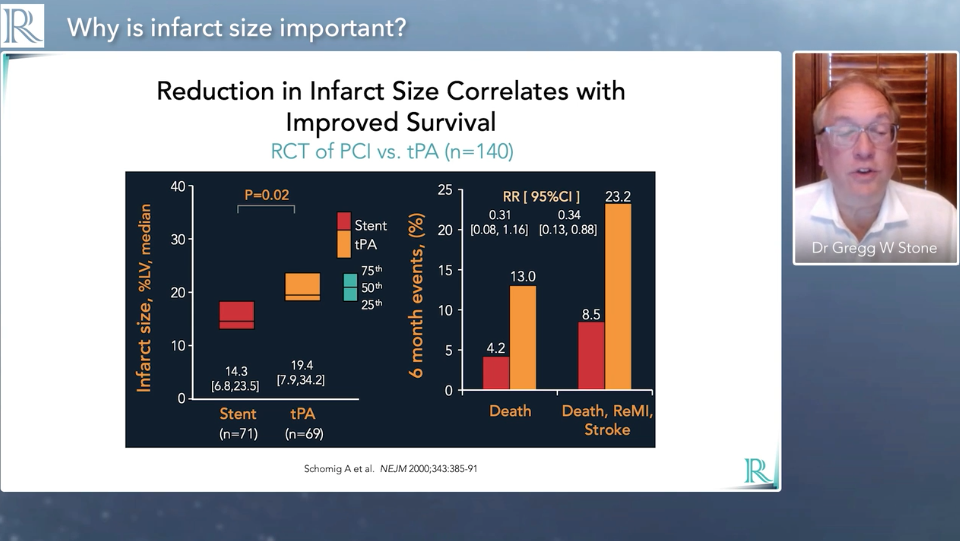 11m 26sPart 1 | Session 4 Infarct Size and Clinical Outcomes Robert Kloner, Gregg Stone
11m 26sPart 1 | Session 4 Infarct Size and Clinical Outcomes Robert Kloner, Gregg Stone
-
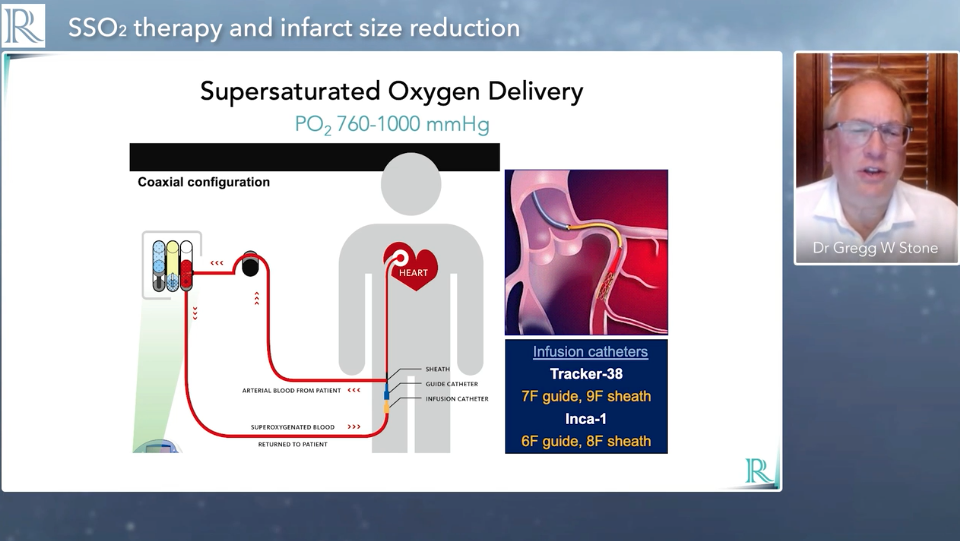 7m 22sPart 1 | Session 5 SSO2 Therapy and Infarct Size Reduction Gregg Stone, Robert Kloner
7m 22sPart 1 | Session 5 SSO2 Therapy and Infarct Size Reduction Gregg Stone, Robert Kloner
-
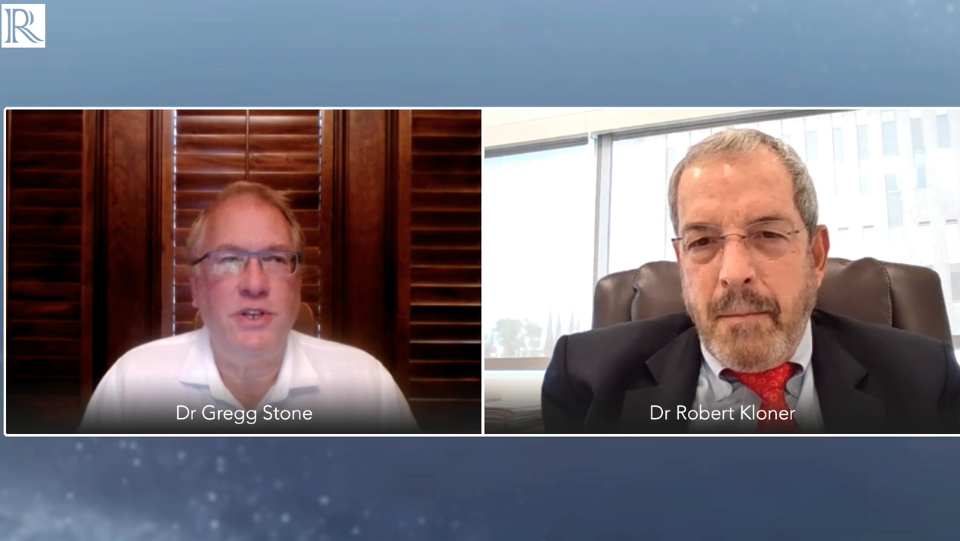 20m 59sPart 1 | Session 6 Questions and Answers Gregg Stone, Robert Kloner
20m 59sPart 1 | Session 6 Questions and Answers Gregg Stone, Robert Kloner
-
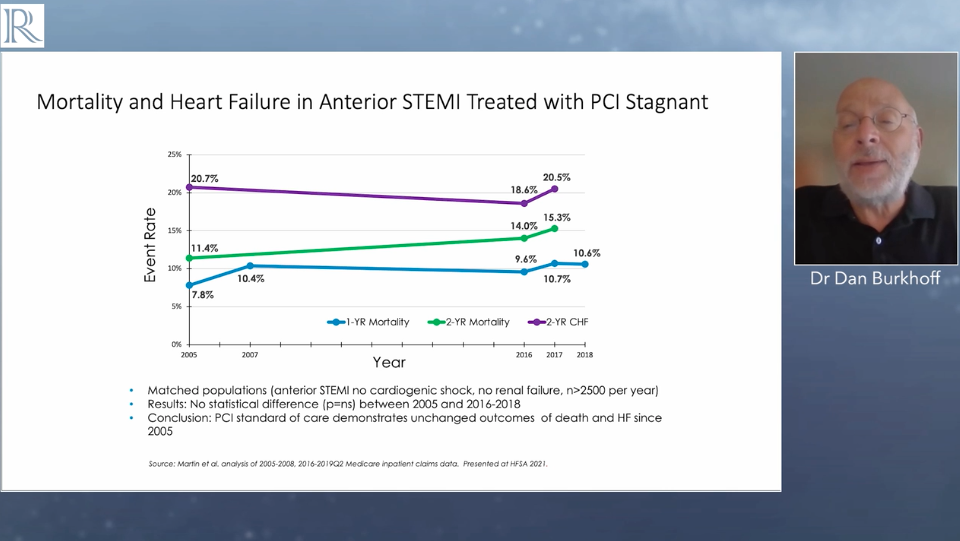 1m 4sPart 2 | Session 1 Current State of STEMI Care Dan Burkhoff, Steven Yakubov, Andreas Schäfer, Richard Schatz
1m 4sPart 2 | Session 1 Current State of STEMI Care Dan Burkhoff, Steven Yakubov, Andreas Schäfer, Richard Schatz
-
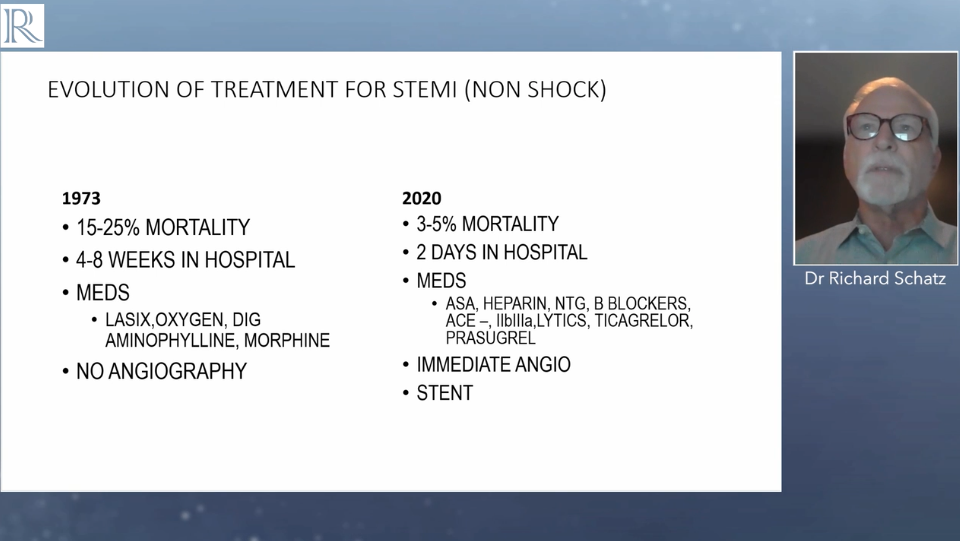 10m 41sPart 2 | Session 2 Evolution of STEMI Treatment Dan Burkhoff, Richard Schatz, Steven Yakubov, Andreas Schäfer
10m 41sPart 2 | Session 2 Evolution of STEMI Treatment Dan Burkhoff, Richard Schatz, Steven Yakubov, Andreas Schäfer
-
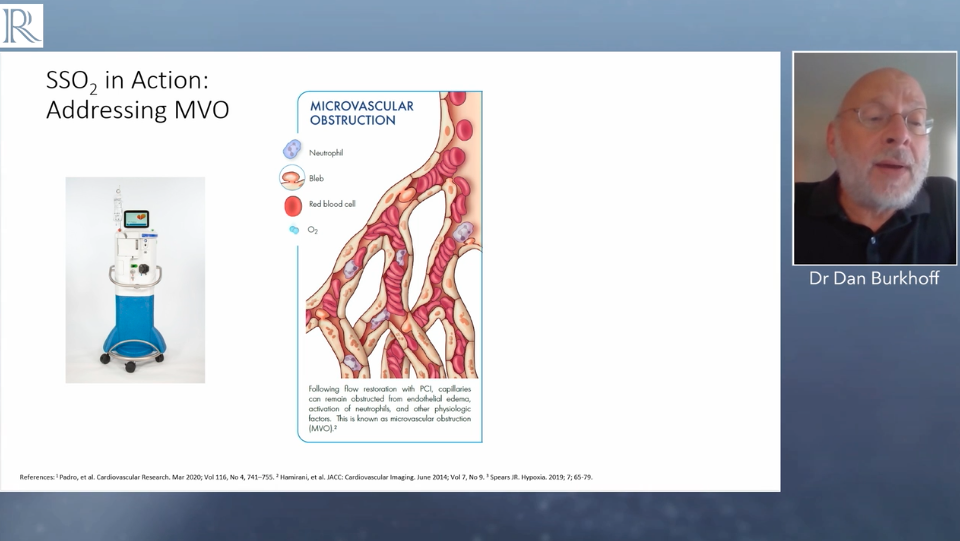 2m 44sPart 2 | Session 3 SSO2 Mechanism of Action Richard Schatz, Dan Burkhoff, Steven Yakubov, Andreas Schäfer
2m 44sPart 2 | Session 3 SSO2 Mechanism of Action Richard Schatz, Dan Burkhoff, Steven Yakubov, Andreas Schäfer
-
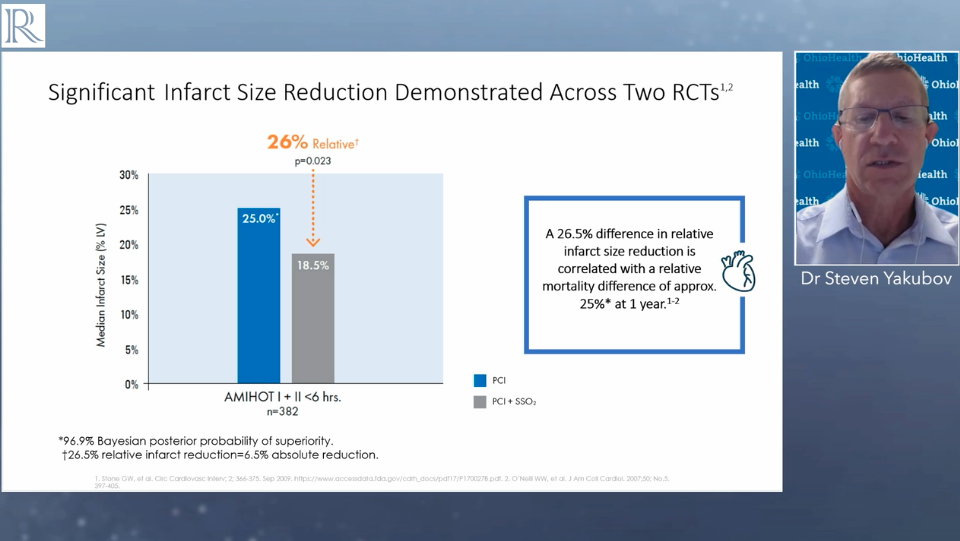 6m 46sPart 2 | Session 4 Clinical Results of SSO2 Therapy with Case Presentation Steven Yakubov, Dan Burkhoff, Andreas Schäfer, Richard Schatz
6m 46sPart 2 | Session 4 Clinical Results of SSO2 Therapy with Case Presentation Steven Yakubov, Dan Burkhoff, Andreas Schäfer, Richard Schatz
-
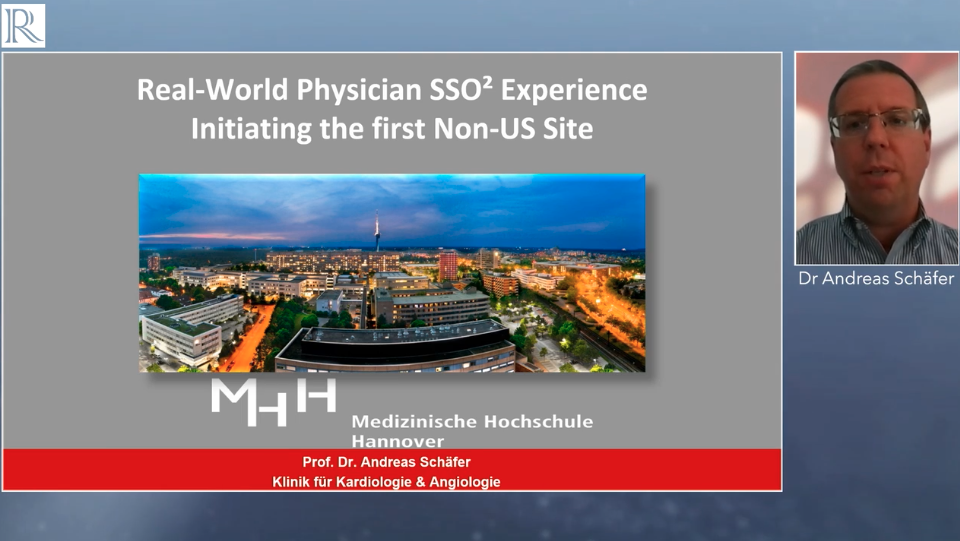 9m 1sPart 2 | Session 5 Case Presentation by Dr A Schäfer Andreas Schäfer, Dan Burkhoff, Steven Yakubov, Richard Schatz
9m 1sPart 2 | Session 5 Case Presentation by Dr A Schäfer Andreas Schäfer, Dan Burkhoff, Steven Yakubov, Richard Schatz
-
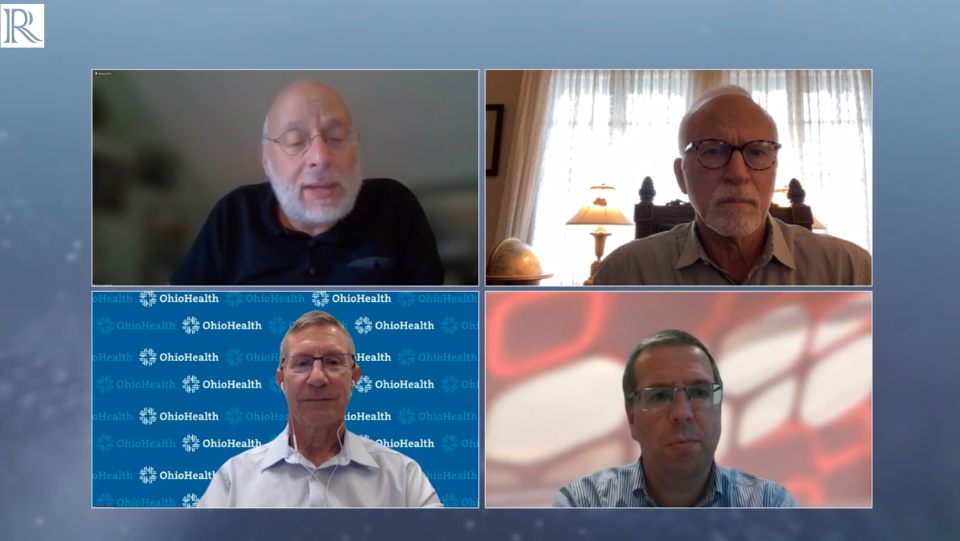 24m 36sPart 2 | Session 6 Questions and Answers Dan Burkhoff, Richard Schatz, Steven Yakubov, Andreas Schäfer
24m 36sPart 2 | Session 6 Questions and Answers Dan Burkhoff, Richard Schatz, Steven Yakubov, Andreas Schäfer
-
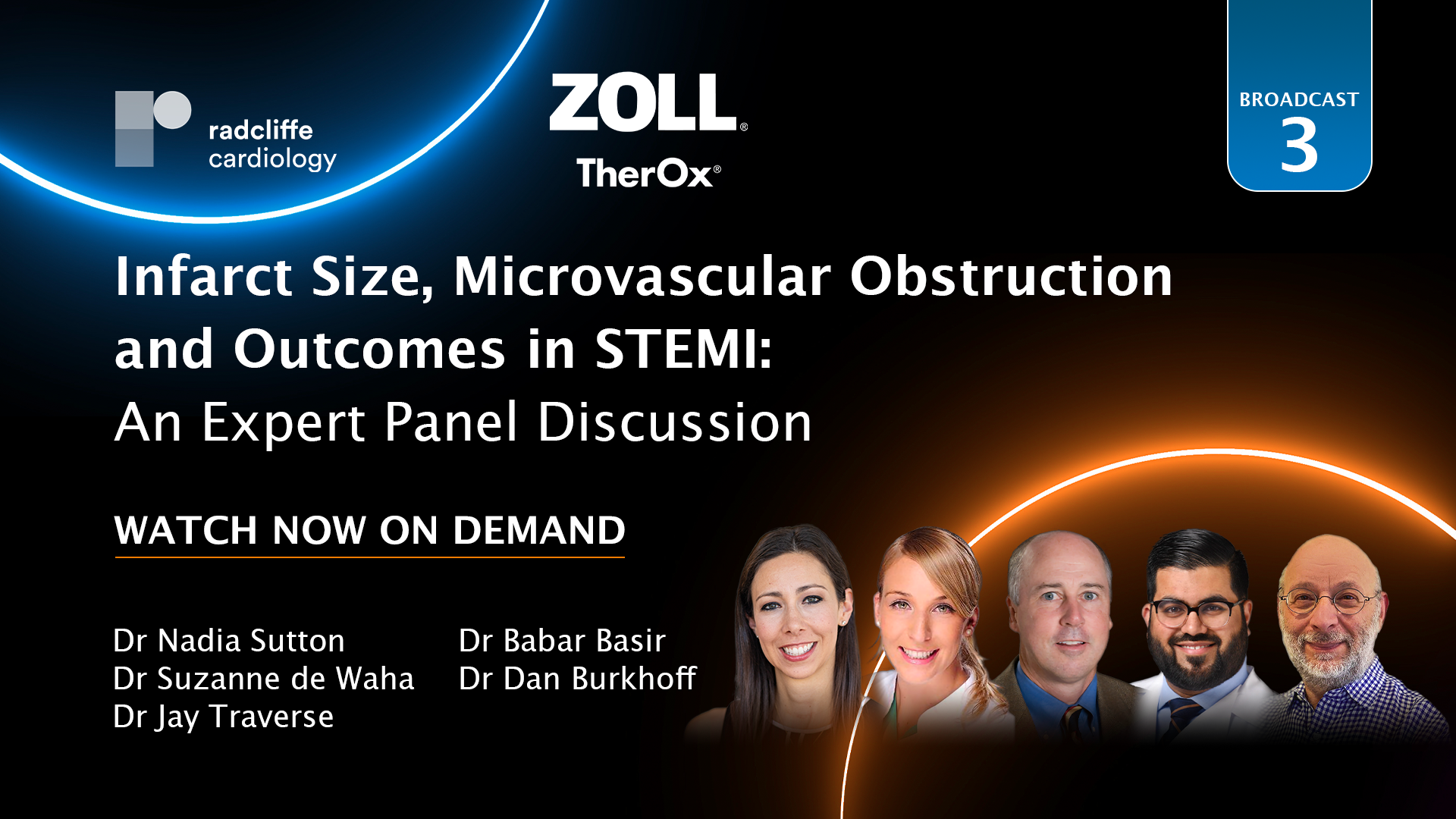 2m 49sPart 3 | Session 1 Introduction Nadia Sutton
2m 49sPart 3 | Session 1 Introduction Nadia Sutton
-
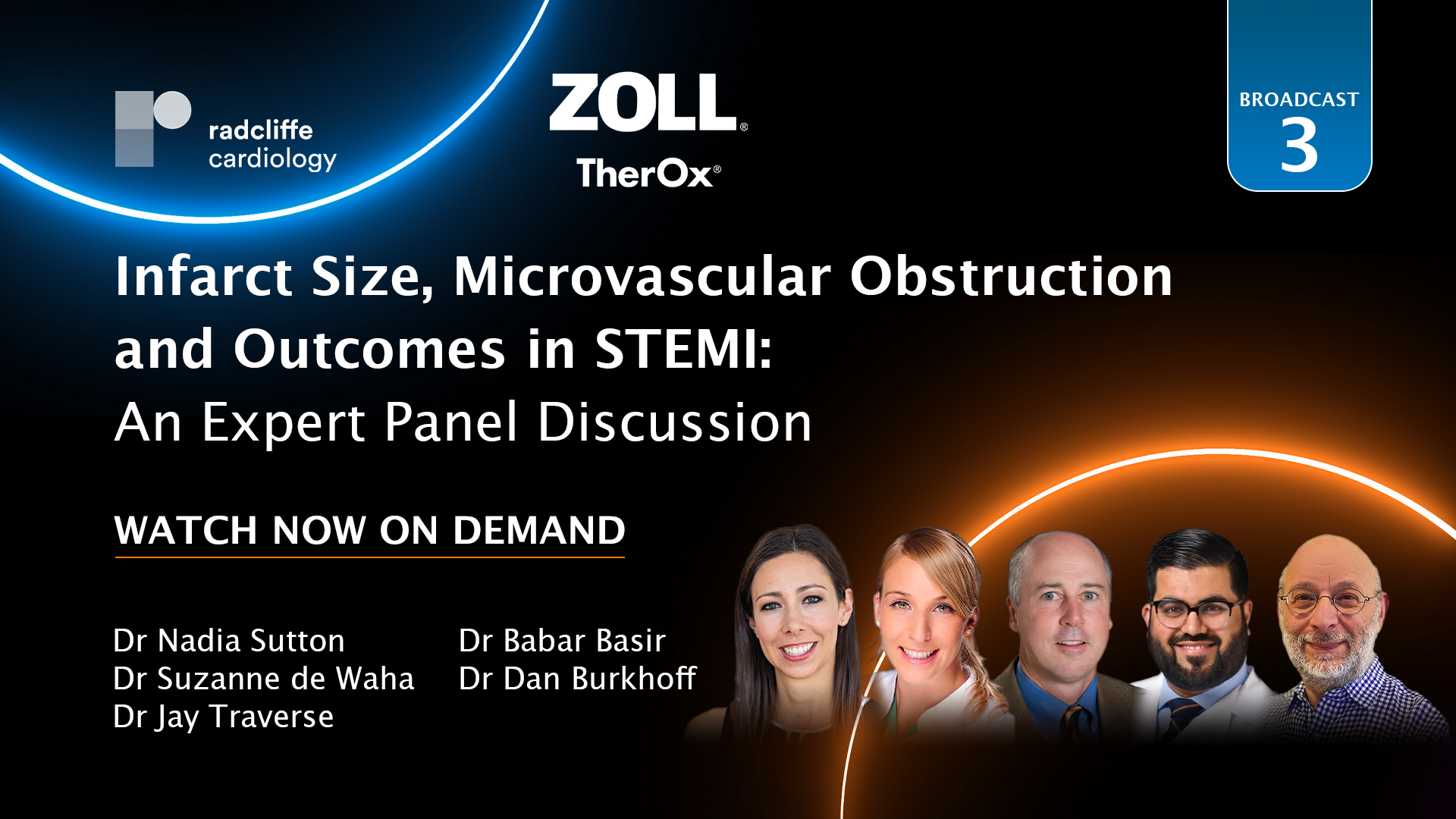 13m 25sPart 3 | Session 2 Overview of the Problem: Microvascular Obstruction and Infarct Size in STEMI Suzanne de Waha
13m 25sPart 3 | Session 2 Overview of the Problem: Microvascular Obstruction and Infarct Size in STEMI Suzanne de Waha
-
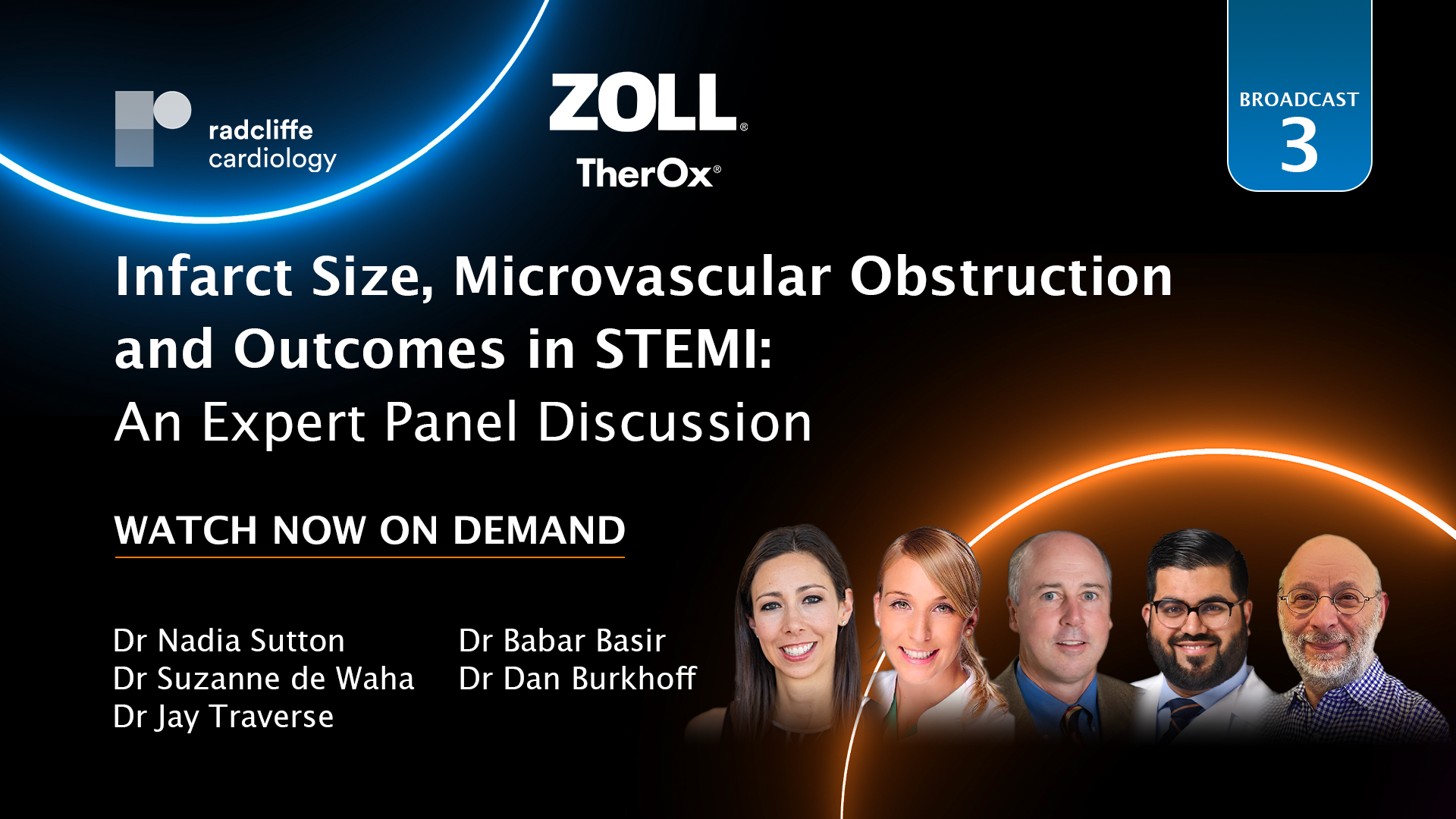 29mPart 3 | Session 3 Questions and Answers Nadia Sutton, Suzanne de Waha, Dan Burkhoff, Babar Basir, Jay Traverse
29mPart 3 | Session 3 Questions and Answers Nadia Sutton, Suzanne de Waha, Dan Burkhoff, Babar Basir, Jay Traverse
-
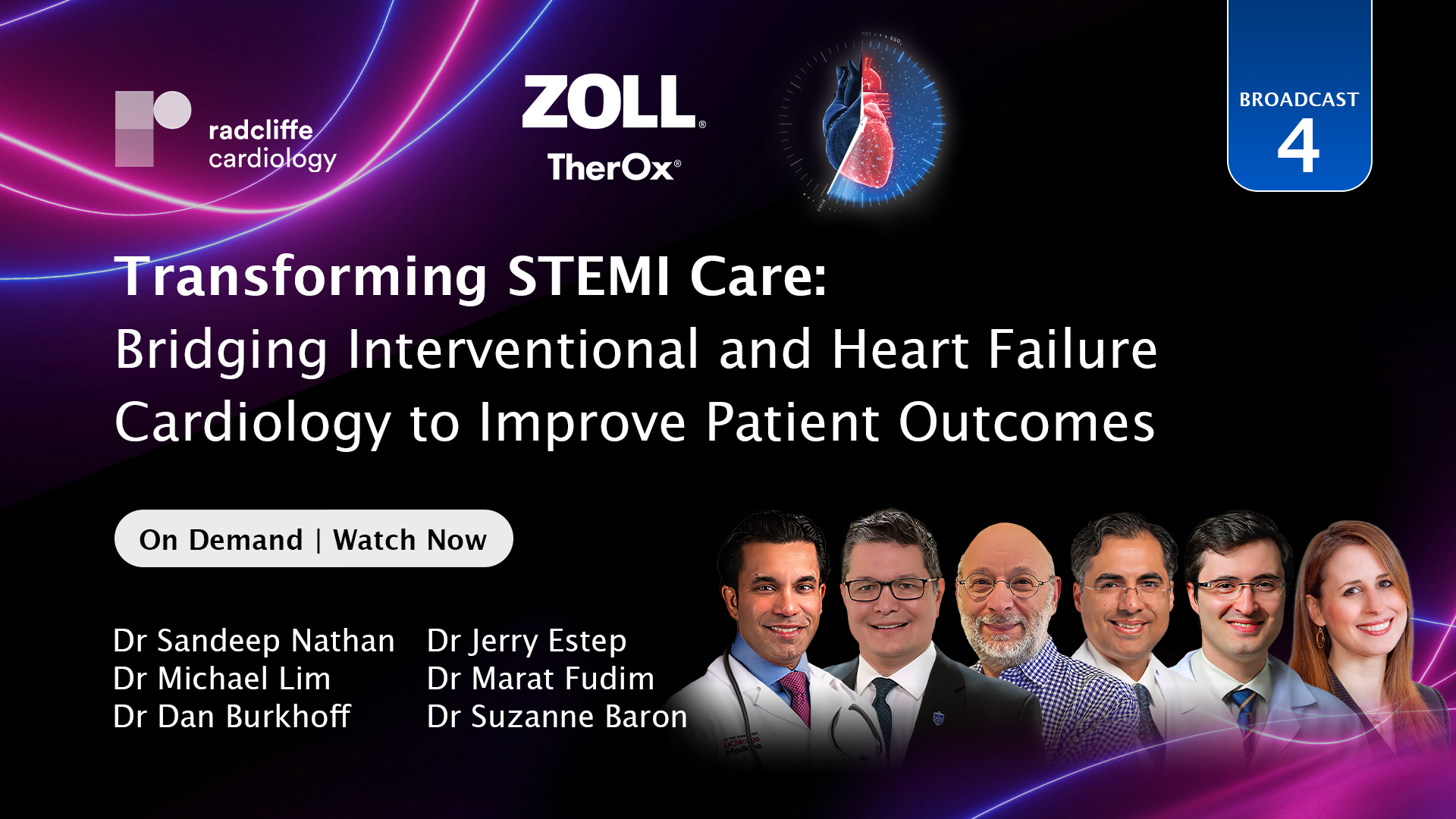 3m 38sPart 4 | Session 1 Introduction Sandeep Nathan, Dan Burkhoff, Jerry D Estep, Marat Fudim, Michael Lim, Suzanne J Baron
3m 38sPart 4 | Session 1 Introduction Sandeep Nathan, Dan Burkhoff, Jerry D Estep, Marat Fudim, Michael Lim, Suzanne J Baron
-
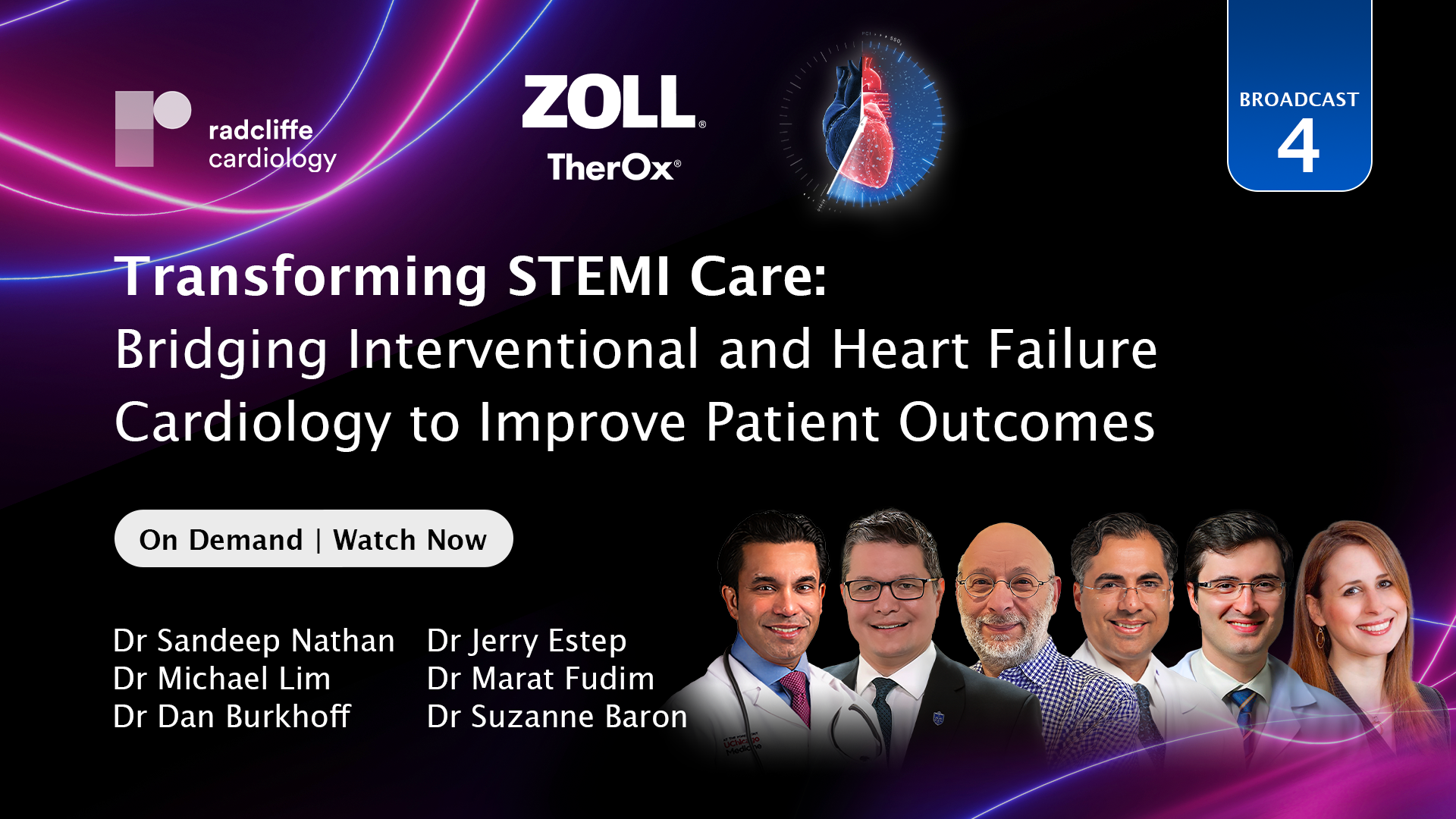 11m 1sPart 4 | Session 2 Heart Failure Epidemic in STEMI Marat Fudim
11m 1sPart 4 | Session 2 Heart Failure Epidemic in STEMI Marat Fudim
Overview
Despite advances in reperfusion with primary stenting, progress in STEMI outcomes has stalled over the past 20 years. With 90% of coronary blood flow in the capillaries, the answer might be in the microvasculature. TherOx SSO2 Therapy is the first FDA approved therapy shown to significantly reduce the infarct size in STEMI patients.
During this series of webinars on Supersaturated Oxygen (SSO2) Therapy, our faculty of renowned international experts will discuss and dissect the mechanisms and data around this promising new therapy for STEMI patients.

Key Objectives
- Understand how SSO2 Therapy works
- Hear about trends in STEMI treatment
- Explore the role of microvascular obstruction and infarct size in outcomes
- Understand the science behind SSO2 Therapy
Target Audience
This series is designed for the entire cardiology community:
- Interventional Cardiologists
- Cardiologists
- Clinical Fellows and Trainees
More from this programme
Part 1
Supersaturated Oxygen Therapy (SSO2): The Next Frontier in STEMI Treatment
Part 2
SSO2 Therapy in STEMI to Reduce Infarct Size: A Conversation with Global Thought Leaders
Part 3
Infarct Size, Microvascular Obstruction and Outcomes in STEMI: An Expert Panel Discussion
Part 4
Transforming STEMI Care: Bridging Interventional and Heart Failure Cardiology to Improve Patient Outcomes
This engaging session features the collaborative efforts of interventional and heart failure cardiologists in revolutionizing the management of ST-Elevation Myocardial Infarction (STEMI) and its impact on heart failure. Through a dynamic fireside chat format, our esteemed panelists will explore groundbreaking approaches and advancements that are reshaping STEMI care.
Faculty Biographies
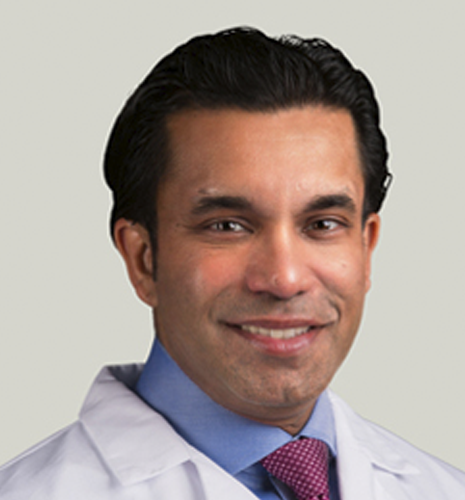
Sandeep Nathan
Dr Sandeep Nathan is currently the director of the coronary care unit at the University of Chicago Medicine in Illinois. He specializes in interventional cardiology, regularly performing coronary and peripheral vascular procedures, including transradial angiography. His research interests include balloon angioplasty, stenting, atherectomy, thrombectomy, cryoplasty and IVUS imaging.
Dr Nathan is an editorial board member of Interventional Cardiology: Reviews, Research, Resources (ICR3).
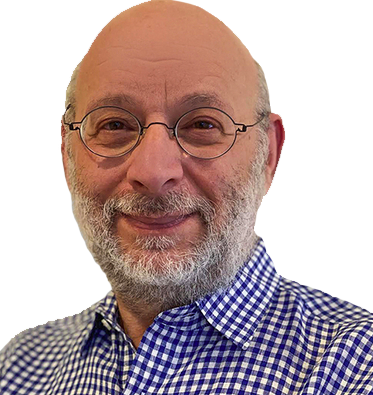
Dan Burkhoff
Director
Dr Dan Burkhoff is currently the Director of Heart Failure, Hemodynamics and MCS Research at Cardiovascular Research Foundation, New York, US. Dr Burkhoff's interest include cardiovascular modeling and ventricular mechanics, cardiovascular monitoring, heart failure, device and pharmacologic treatments for heart failure, including left ventricular assist devices. He is also author of Harvi, an interactive simulation-based application for teaching and researching on ventricular mechanics and hemodynamics.
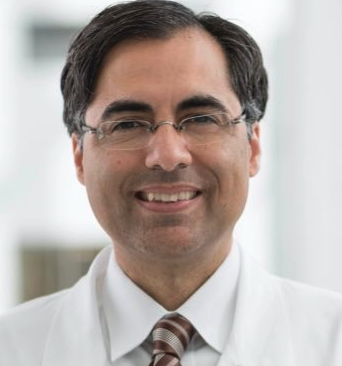
Jerry D Estep
Cardiologist
Dr Jerry Estep is a Cardiologist at Cleveland Clinic Florida, Weston, US. He is also the Head of the Section of Heart Failure and Transplantation in the Tomsich Family Department of Cardiovascular Medicine in the Sydell and Arnold Miller Family Heart, Vascular & Thoracic Institute.
Dr Estep's special interests include advanced heart failure, left ventricular assist devices, heart transplantation, echocardiography, cardiac amyloidosis, and coronary angiography.
He earned his medical degree from Baylor College of Medicine, Houston, Texas.
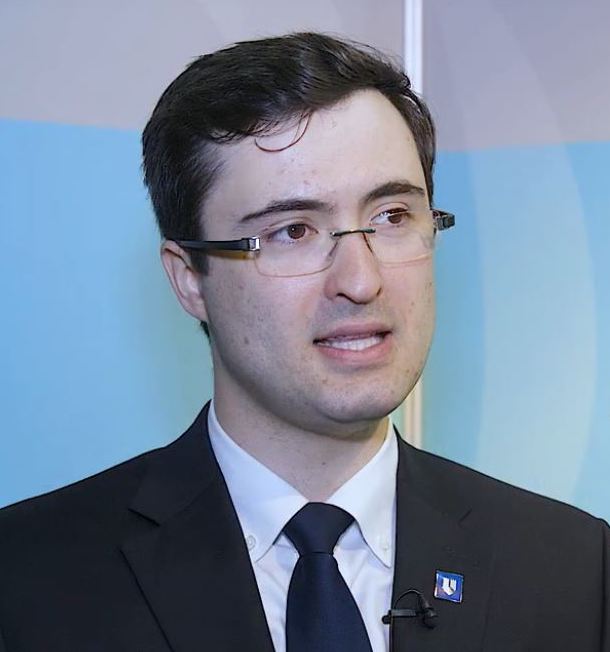
Marat Fudim
Assistant Professor
Dr Marat Fudim is a cardiologist, advanced heart failure specialist and assistant professor at Duke University, Durham, US. He has a clinical and research interest in heart failure, including advanced therapies such as mechanical assist devices or "heart pumps" and heart transplantation.
As part of his work, Dr Fudim also performs cardiac catheterizations to understand a patient’s disease.
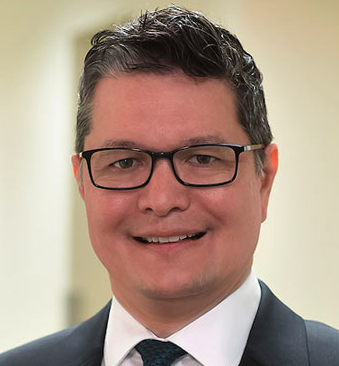
Michael Lim
Cardiologist
Dr Michael Lim is a Cardiologist in Saint Louis, Missouri, US. Dr Lim received his medical degree from Wayne State University School of Medicine and has been in practice for over 20 years.
He specializes in cardiovascular disease and interventional cardiology.
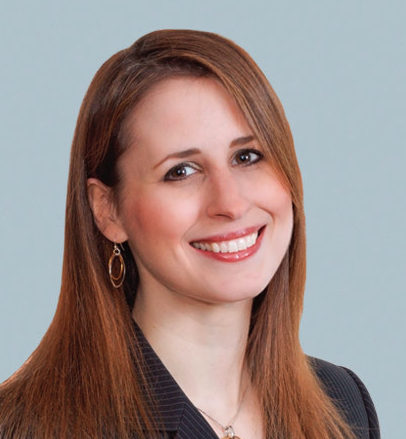
Suzanne J Baron
Interventional Cardiologist
Dr Suzanne Baron is an Interventional Cardiologist at Massachusetts General Hospital, Boston, US. She received her BA from Harvard University, her MD from Yale School of Medicine and her MSc from Harvard School of Public Health.
Dr Baron is involved in research involving the effects of cardiovascular devices on healthcare costs and patient-reported outcomes and she has published on these topics in the Journal of the American College of Cardiology, JAMA Cardiology and Circulation.
She is active within the Society for Cardiovascular Angiography and Interventions and has served as the chair for the Women in Innovations committee as well as the deputy editor for the Journal of the Society for Cardiovascular Angiography and Interventions (JSCAI).






